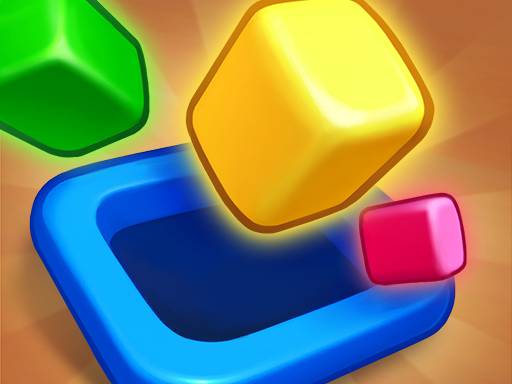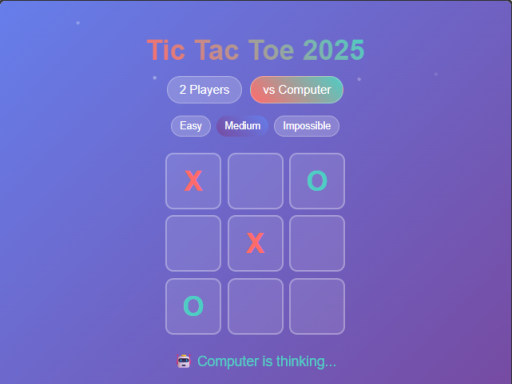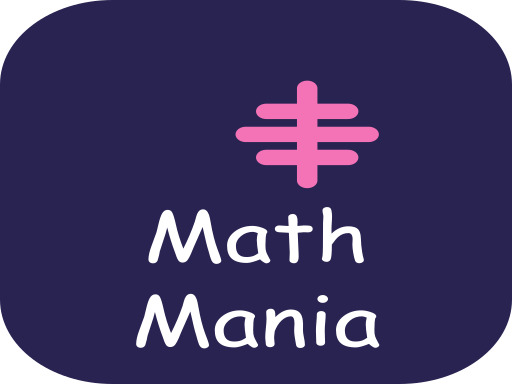Mahjong Logic Ques
About Mahjong Logic Ques
Okay, so you know how sometimes you stumble across a game, and it just… *clicks*? Like, everything about it, from the moment you first see the title screen, just resonates with that specific itch you didn't even realize you had? That's Mahjong Logic Ques for me, honestly. I've always been drawn to games that demand a bit of thought, something that makes my brain hum without feeling like I'm back in a calculus class. And man, this game delivers on that in spades.
I remember the first time I fired it up. I was expecting, you know, another Mahjong Solitaire clone. We've all played them, right? Find two open identical tiles, click, they vanish, rinse and repeat. Pleasant, sure, but rarely *exciting*. But Mahjong Logic Ques? This is a whole different beast. It takes that familiar, comforting core of tile-matching and injects it with this brilliant shot of strategic depth that just elevates it into something genuinely special.
You start a level, and you're greeted with these incredible, handcrafted layouts. And I mean *handcrafted*. This isn't just some algorithm randomly stacking tiles; each board feels like a carefully designed puzzle, a miniature architectural marvel built from bamboo, dragons, and winds. You can almost feel the smooth, cool surface of the tiles under your fingertips, even though you're just clicking on a screen. The visual design is clean, elegant, and just inviting. It doesn't bombard you with flashing lights or overly busy interfaces. It's calm, focused, and immediately, you’re drawn into the challenge.
The goal, at its heart, is simple: clear the board. But the *how* is where the magic truly happens. Of course, you can match identical tiles, just like in classic Mahjong. You see two open 8-Bams, you click, and *poof*, they’re gone. There’s a satisfying little chime, a subtle visual effect, and the board shifts ever so slightly, revealing new possibilities. That alone is pretty zen, I’ll admit. It’s a great way to ease into the rhythm of a new layout.
But then, you start to notice something else, something that genuinely blew my mind and changed how I approached the entire game. The game introduces these "coherent" matches, and this is where the "Logic Ques" part really shines. It’s not just about finding twins anymore; it’s about seeing patterns, sequences, and sets that aren't immediately obvious.
Take the "chow" mechanic, for example. In traditional Mahjong, a chow is a sequence of three tiles, like a 2, 3, and 4 of the same suit. Here, it’s been brilliantly adapted for a solitaire-style puzzle. You’re looking to combine *two pairs* into a sequence to clear. So, you might have an open 2-Bamboo and an open 3-Bamboo. Your brain, used to just finding identicals, might skip over them. But then, you spot an open 4-Bamboo and an open 5-Bamboo elsewhere on the board. And suddenly, it hits you! If you match the 2-Bam and 3-Bam, and then the 4-Bam and 5-Bam, you’ve essentially created a logical sequence, and *bam*, all four tiles vanish. The board just opens up in a way that’s incredibly satisfying. It’s like a little lightbulb goes off in your head, a mini-epiphany that makes you feel genuinely clever.
And then there’s the "kong." This is another one that just feels incredibly powerful. Imagine you've got two pairs of identical tiles – say, two open Red Dragons, and two more open Red Dragons. In a normal Mahjong game, you'd clear them as two separate pairs. But here, if you can connect those two pairs into a "kong," essentially four of a kind, they all disappear in one glorious move. It’s like hitting a jackpot, honestly. You’re not just clearing two tiles; you’re clearing *four*. And in a game where every move matters, especially when you’re racing the clock, those big clears can be absolute game-changers. The visual and auditory feedback for a kong is just a little bit more emphatic, a little more celebratory, and it makes you feel like a strategic genius.
What I love about games like this is how they gently push you to think differently. You can’t just blindly click. You have to develop an eye for these coherent matches, because often, they’re the key to unlocking crucial tiles buried deep within the layout. You'll find yourself scanning the board, not just for identical twins, but for potential sequences, for those elusive four-of-a-kind opportunities. It transforms the game from a simple matching exercise into a dynamic, evolving puzzle where every decision has a ripple effect.
There’s something magical about that moment when a strategy finally clicks into place. You’ve been staring at a particularly tricky cluster of tiles, feeling that familiar tug of frustration, maybe even hearing the gentle tick-tock of the clock in the background starting to feel a little more urgent. You try a few moves, maybe clear some peripheral tiles, and then, suddenly, you see it. A 6, 7, 8, and 9 of Circles, perfectly positioned for a double-chow clear. Or perhaps you realize that clearing those two Green Dragons will open up *another* two Green Dragons, setting up a massive kong that clears a whole section of the board. That feeling of understanding, that visceral "aha!" moment, is what keeps me coming back. It’s like untangling a particularly stubborn knot, and then feeling the entire rope just flow smoothly.
And the progression? It’s fantastic. The game packs so many handcrafted layouts, and each one feels fresh and challenging. You’re not just replaying the same few boards with different tile sets. Oh no, the complexity ramps up beautifully. Just when you think you’ve mastered a certain type of layout, the game throws a curveball at you – a denser stack, a more intricate pattern, tiles strategically blocked in ways that force you to think three or four moves ahead. It’s like the game is constantly saying, "Alright, you got that? Let's see if you can handle *this*." And honestly, that’s what makes it so engaging. You’re always learning, always refining your strategy, always upgrading your own logic skills.
You know that feeling when you're so absorbed in a game that you lose track of time? That's Mahjong Logic Ques for me. I’ll sit down for "just one quick game" and suddenly realize an hour has vanished. The gentle background music, the satisfying *clink* of tiles, the subtle visual effects – it all combines to create this incredibly immersive experience. It’s not about high-octane action or epic narratives; it’s about the quiet satisfaction of mental conquest, the thrill of untangling complexity, and the pure joy of seeing a beautifully designed puzzle yield to your intellect.
The brilliant thing about this is how it manages to be both relaxing and mentally stimulating at the same time. You can play it casually, just enjoying the process of clearing tiles, or you can really lean into the strategic elements, trying to optimize your moves, chase those big chow and kong clears, and beat your best times. It’s incredibly versatile in that way. In my experience, the best moments come when you’re in that zone, where your fingers are moving almost instinctively, but your brain is still a few steps ahead, anticipating the next opening, planning the sequence of clears that will unravel the board most efficiently.
What's fascinating is how the game encourages a kind of spatial reasoning that goes beyond simple pattern recognition. You’re not just seeing tiles; you’re seeing pathways, blockages, and potential cascades. You're constantly evaluating which tiles are "open" and which are blocked, and then figuring out which *other* tiles need to be cleared to open up the ones you really need. It’s a delightful mental workout, and the sense of accomplishment when you finally clear a particularly stubborn board is genuinely exhilarating. You can almost feel the tension in your shoulders ease as the last tiles vanish and the "Board Cleared!" message pops up.
So, yeah, if you're looking for a puzzle game that's more than just a time-killer, something that will genuinely challenge your mind, reward your patience, and give you that satisfying "click" of understanding over and over again, you absolutely *have* to check out Mahjong Logic Ques. It’s not just a game; it’s a journey of discovery, a masterclass in elegant puzzle design, and honestly, it’s one of the most rewarding gaming experiences I’ve had in a long time. Just wait until you encounter your first truly complex layout and manage to clear it with a series of perfectly executed chows and kongs. The real magic happens then, and you'll know exactly what I mean. You'll be hooked, I promise.
I remember the first time I fired it up. I was expecting, you know, another Mahjong Solitaire clone. We've all played them, right? Find two open identical tiles, click, they vanish, rinse and repeat. Pleasant, sure, but rarely *exciting*. But Mahjong Logic Ques? This is a whole different beast. It takes that familiar, comforting core of tile-matching and injects it with this brilliant shot of strategic depth that just elevates it into something genuinely special.
You start a level, and you're greeted with these incredible, handcrafted layouts. And I mean *handcrafted*. This isn't just some algorithm randomly stacking tiles; each board feels like a carefully designed puzzle, a miniature architectural marvel built from bamboo, dragons, and winds. You can almost feel the smooth, cool surface of the tiles under your fingertips, even though you're just clicking on a screen. The visual design is clean, elegant, and just inviting. It doesn't bombard you with flashing lights or overly busy interfaces. It's calm, focused, and immediately, you’re drawn into the challenge.
The goal, at its heart, is simple: clear the board. But the *how* is where the magic truly happens. Of course, you can match identical tiles, just like in classic Mahjong. You see two open 8-Bams, you click, and *poof*, they’re gone. There’s a satisfying little chime, a subtle visual effect, and the board shifts ever so slightly, revealing new possibilities. That alone is pretty zen, I’ll admit. It’s a great way to ease into the rhythm of a new layout.
But then, you start to notice something else, something that genuinely blew my mind and changed how I approached the entire game. The game introduces these "coherent" matches, and this is where the "Logic Ques" part really shines. It’s not just about finding twins anymore; it’s about seeing patterns, sequences, and sets that aren't immediately obvious.
Take the "chow" mechanic, for example. In traditional Mahjong, a chow is a sequence of three tiles, like a 2, 3, and 4 of the same suit. Here, it’s been brilliantly adapted for a solitaire-style puzzle. You’re looking to combine *two pairs* into a sequence to clear. So, you might have an open 2-Bamboo and an open 3-Bamboo. Your brain, used to just finding identicals, might skip over them. But then, you spot an open 4-Bamboo and an open 5-Bamboo elsewhere on the board. And suddenly, it hits you! If you match the 2-Bam and 3-Bam, and then the 4-Bam and 5-Bam, you’ve essentially created a logical sequence, and *bam*, all four tiles vanish. The board just opens up in a way that’s incredibly satisfying. It’s like a little lightbulb goes off in your head, a mini-epiphany that makes you feel genuinely clever.
And then there’s the "kong." This is another one that just feels incredibly powerful. Imagine you've got two pairs of identical tiles – say, two open Red Dragons, and two more open Red Dragons. In a normal Mahjong game, you'd clear them as two separate pairs. But here, if you can connect those two pairs into a "kong," essentially four of a kind, they all disappear in one glorious move. It’s like hitting a jackpot, honestly. You’re not just clearing two tiles; you’re clearing *four*. And in a game where every move matters, especially when you’re racing the clock, those big clears can be absolute game-changers. The visual and auditory feedback for a kong is just a little bit more emphatic, a little more celebratory, and it makes you feel like a strategic genius.
What I love about games like this is how they gently push you to think differently. You can’t just blindly click. You have to develop an eye for these coherent matches, because often, they’re the key to unlocking crucial tiles buried deep within the layout. You'll find yourself scanning the board, not just for identical twins, but for potential sequences, for those elusive four-of-a-kind opportunities. It transforms the game from a simple matching exercise into a dynamic, evolving puzzle where every decision has a ripple effect.
There’s something magical about that moment when a strategy finally clicks into place. You’ve been staring at a particularly tricky cluster of tiles, feeling that familiar tug of frustration, maybe even hearing the gentle tick-tock of the clock in the background starting to feel a little more urgent. You try a few moves, maybe clear some peripheral tiles, and then, suddenly, you see it. A 6, 7, 8, and 9 of Circles, perfectly positioned for a double-chow clear. Or perhaps you realize that clearing those two Green Dragons will open up *another* two Green Dragons, setting up a massive kong that clears a whole section of the board. That feeling of understanding, that visceral "aha!" moment, is what keeps me coming back. It’s like untangling a particularly stubborn knot, and then feeling the entire rope just flow smoothly.
And the progression? It’s fantastic. The game packs so many handcrafted layouts, and each one feels fresh and challenging. You’re not just replaying the same few boards with different tile sets. Oh no, the complexity ramps up beautifully. Just when you think you’ve mastered a certain type of layout, the game throws a curveball at you – a denser stack, a more intricate pattern, tiles strategically blocked in ways that force you to think three or four moves ahead. It’s like the game is constantly saying, "Alright, you got that? Let's see if you can handle *this*." And honestly, that’s what makes it so engaging. You’re always learning, always refining your strategy, always upgrading your own logic skills.
You know that feeling when you're so absorbed in a game that you lose track of time? That's Mahjong Logic Ques for me. I’ll sit down for "just one quick game" and suddenly realize an hour has vanished. The gentle background music, the satisfying *clink* of tiles, the subtle visual effects – it all combines to create this incredibly immersive experience. It’s not about high-octane action or epic narratives; it’s about the quiet satisfaction of mental conquest, the thrill of untangling complexity, and the pure joy of seeing a beautifully designed puzzle yield to your intellect.
The brilliant thing about this is how it manages to be both relaxing and mentally stimulating at the same time. You can play it casually, just enjoying the process of clearing tiles, or you can really lean into the strategic elements, trying to optimize your moves, chase those big chow and kong clears, and beat your best times. It’s incredibly versatile in that way. In my experience, the best moments come when you’re in that zone, where your fingers are moving almost instinctively, but your brain is still a few steps ahead, anticipating the next opening, planning the sequence of clears that will unravel the board most efficiently.
What's fascinating is how the game encourages a kind of spatial reasoning that goes beyond simple pattern recognition. You’re not just seeing tiles; you’re seeing pathways, blockages, and potential cascades. You're constantly evaluating which tiles are "open" and which are blocked, and then figuring out which *other* tiles need to be cleared to open up the ones you really need. It’s a delightful mental workout, and the sense of accomplishment when you finally clear a particularly stubborn board is genuinely exhilarating. You can almost feel the tension in your shoulders ease as the last tiles vanish and the "Board Cleared!" message pops up.
So, yeah, if you're looking for a puzzle game that's more than just a time-killer, something that will genuinely challenge your mind, reward your patience, and give you that satisfying "click" of understanding over and over again, you absolutely *have* to check out Mahjong Logic Ques. It’s not just a game; it’s a journey of discovery, a masterclass in elegant puzzle design, and honestly, it’s one of the most rewarding gaming experiences I’ve had in a long time. Just wait until you encounter your first truly complex layout and manage to clear it with a series of perfectly executed chows and kongs. The real magic happens then, and you'll know exactly what I mean. You'll be hooked, I promise.
Enjoy playing Mahjong Logic Ques online for free on Viralexclusivo Games. This Puzzle game offers amazing gameplay and stunning graphics. No downloads required, play directly in your browser!
How to Play
Mouse click or tap to play





Comments
This game is awesome! I love the graphics and gameplay.
One of the best games I've played recently. Highly recommended!